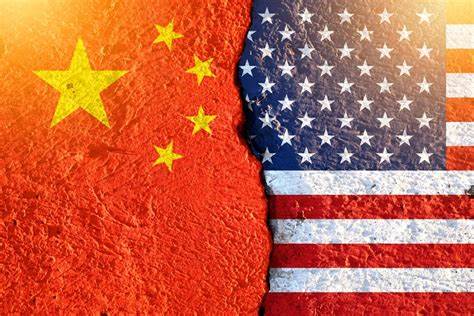In recent years, the relationship between the United States and China has been marked by increasing tensions, particularly in the realm of trade. The latest development in this ongoing saga involves the U.S. imposing new trade restrictions on 37 Chinese firms over alleged national security concerns. These entities have been accused of involvement in activities such as manufacturing drones for the Chinese military and shipping controlled items to Russia.
The move by the U.S. to blacklist these Chinese companies represents a significant escalation in the trade dispute between the two economic powerhouses. It reflects the deepening mistrust and rivalry that have characterized their relationship in recent years. The Biden administration’s decision to impose these restrictions underscores its commitment to addressing what it perceives as threats to national security emanating from China.
Chinese officials have responded firmly to the U.S. action, expressing strong opposition and accusing the U.S. of politicizing trade issues. They argue that both China and Russia have the right to engage in normal economic cooperation without interference from other countries. Moreover, they criticize the U.S. for its approach of increasing tariffs through what they describe as an abusive review process. Chinese authorities have called on the U.S. to adhere to World Trade Organization rules and warned that China will take all necessary measures to defend its rights and interests in response to these actions.
The imposition of new trade restrictions comes against the backdrop of broader trade tensions between the U.S. and China. Reports suggest that the Biden administration is considering imposing new tariffs targeting Chinese electric vehicles and other strategic sectors. This continuation of a trend that began during the presidency of Donald Trump has culminated in a full-blown trade war between the two nations. Additionally, the U.S. is actively seeking to counter China’s economic influence in Latin America through initiatives like the Americas Act, aimed at strengthening U.S. trade agreements with countries in the region.
These developments underscore the deepening rivalry between the U.S. and China across various economic and geopolitical domains. The ongoing trade tensions between the world’s two largest economies have far-reaching implications for global trade and economic stability, impacting industries and markets worldwide. As both sides navigate these challenges, the potential for further escalation remains a significant concern for businesses, investors, and policymakers alike.
Ultimately, the latest trade restrictions imposed by the U.S. on Chinese firms represent another chapter in the complex and contentious relationship between the two countries. While efforts to address legitimate national security concerns are essential, it is crucial to ensure that such actions do not exacerbate existing tensions or lead to further escalation. Finding a path to constructive engagement and cooperation remains paramount, as both the U.S. and China grapple with the challenges of managing their relationship in an increasingly interconnected and interdependent world.
